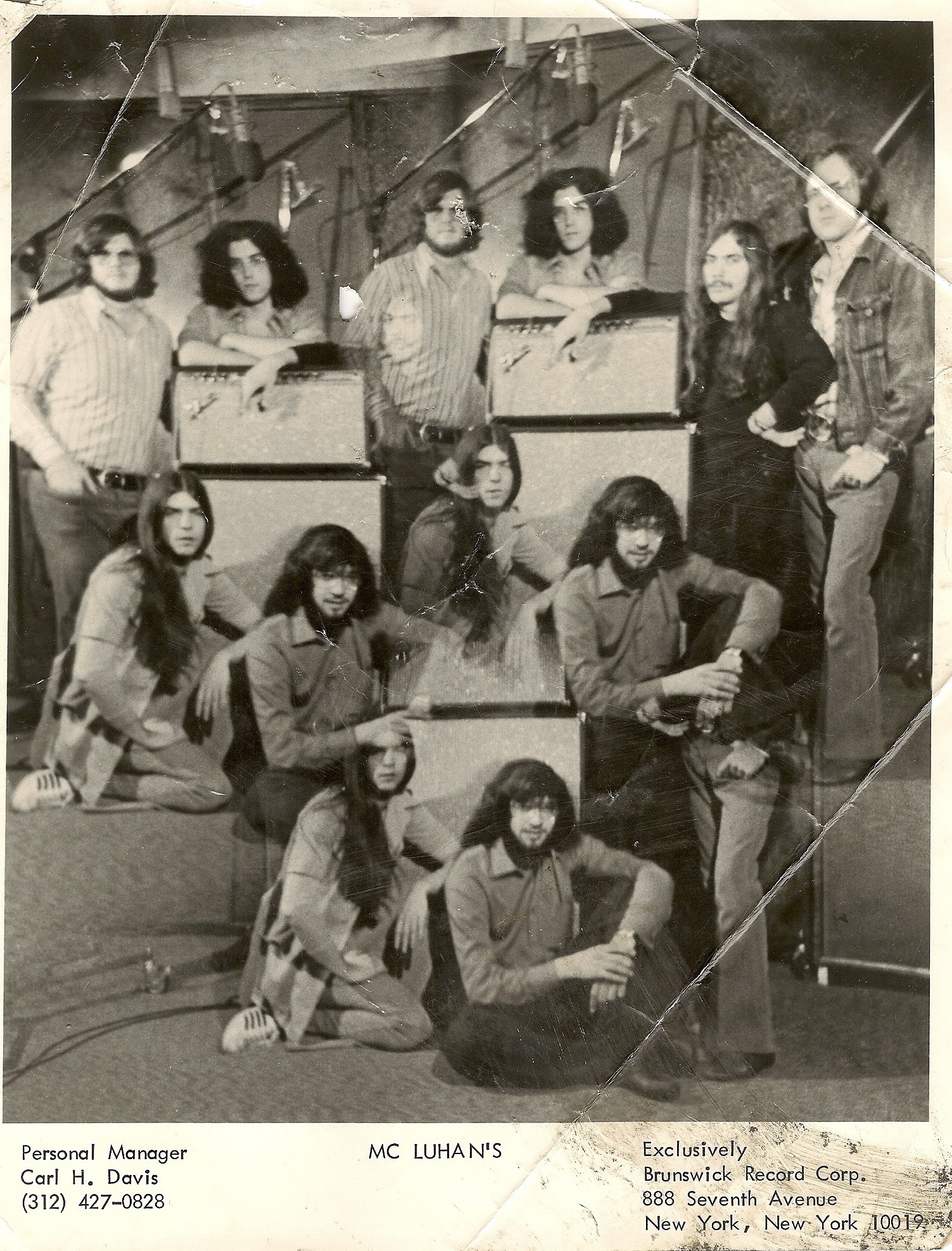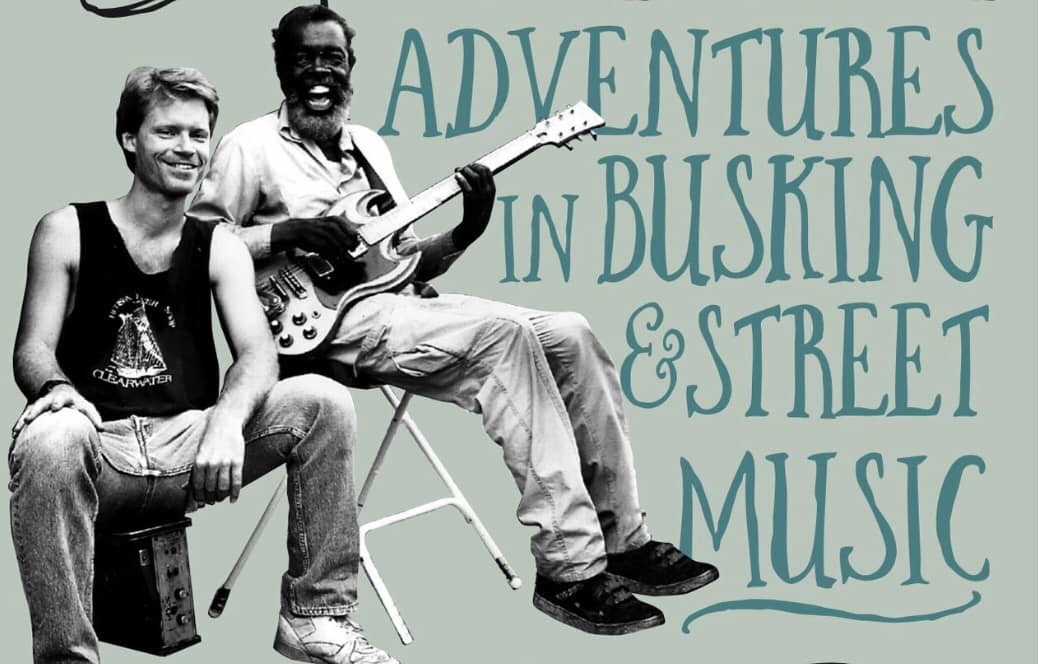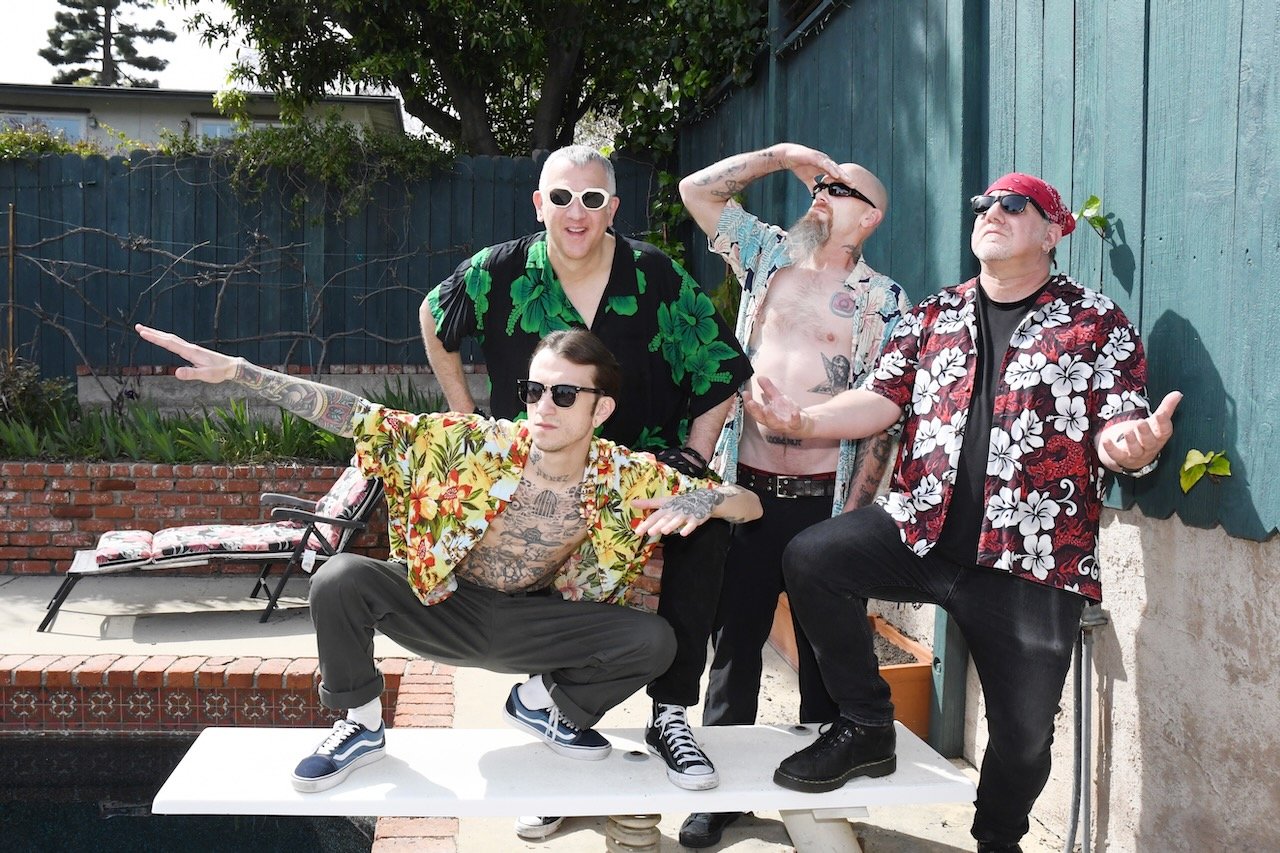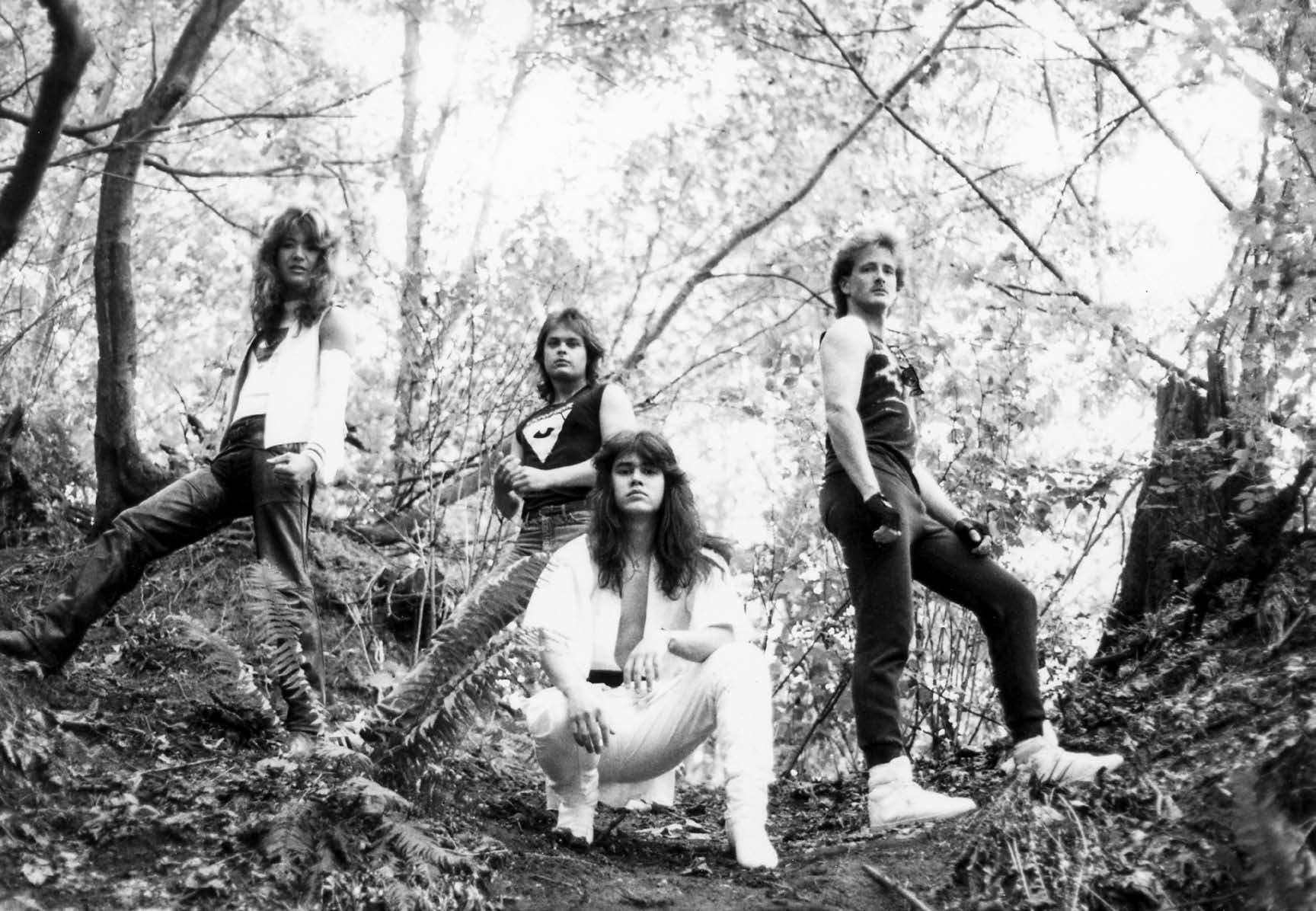McLuhan | Interview | From Obscurity to Cult Classic
Born in 1969 in Chicago, McLuhan was more than just a band—they were a concept, a mixed-media experiment that shattered musical norms.
The band brought together a diverse crew who blended influences from the jazz-infused brass of Chicago and the progressive rock legends like Jethro Tull and King Crimson. Their sole album, ‘Anomaly,’ recorded at Brunswick Studios in 1970, is a sonic trip that features standout tracks like ‘Monster Bride’ and ‘Spiders in Neal’s Basement,’ showcasing their fearless experimentation. Even after they disbanded shortly after the album’s release, the spirit of McLuhan lingered on as the members stayed in touch, navigating life’s twists and turns. Fast forward to 1995, interest in their music began to bubble up again, sparking a reunion that reignited their passion for performance. With Neal taking the lead in organizing rehearsals and covering costs, McLuhan started jamming again about eight years ago. Today, they’re back at it.
Paul Cohn, a friend and fellow student of David Wright at the University of Illinois Chicago (UICC), played saxophone, flute, and clarinet in a weekend prom group called the Seven Seas. When the band lost their trumpeter, Paul called on David to fill in. However, the group soon faced turmoil when the singer and guitarist, who had their sights set on stardom, walked out. In the wake of this split, David introduced the remaining members to the McLuhan concept.
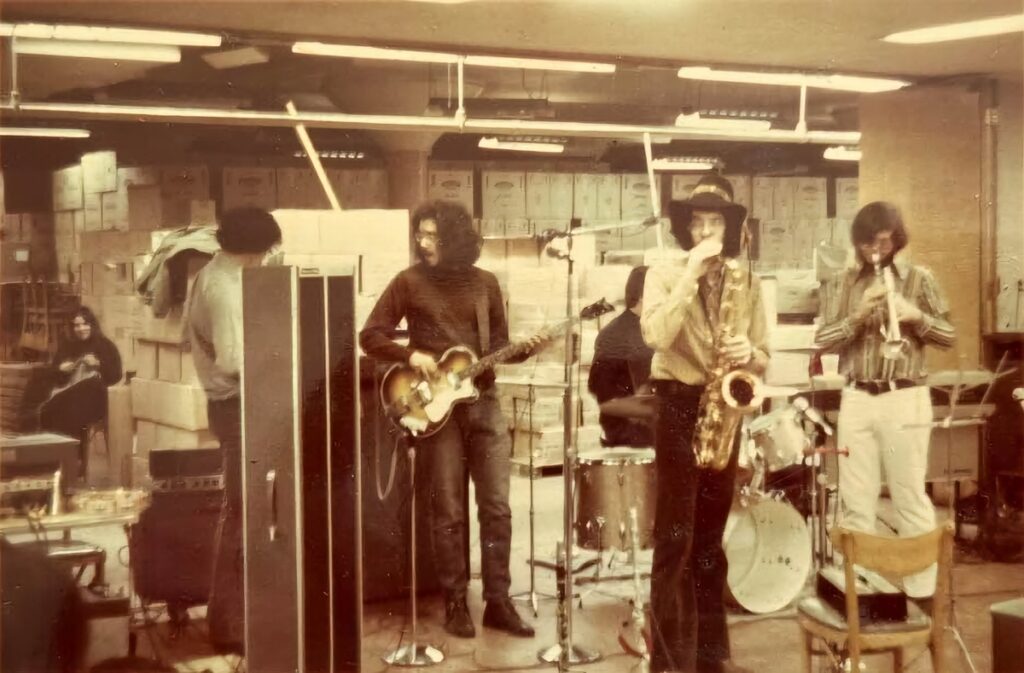
Would you like to share about your upbringing?
Paul Cohn: I was born and raised in Chicago, and our home was in Jeffery Manor on the far southeast side. My dad had a small furniture and appliance store until he died suddenly when I was just 15. It was called Citywide Radio and Appliance. Years later, in 1987, I started my own company that I named Citywide Cellular. That’s what I did to make a living.
My dad was also a music lover and loved Benny Goodman, Glenn Miller, and other big bands performing in Chicago. He bought me my first instrument—a Bb clarinet—and set me up with lessons from an architect named Bob Gordon, who had a wedding band on the side. His wife, Ann Gordon, played piano. They lived on our block just a few doors down the street. This was in 1958 when I was eight years old.
Mr. Gordon really taught me to read music, and that became a great foundation for everything that followed. Not only sax and flute, but I even picked up a little piano by myself, reading the notes and figuring out chord symbols.
The clarinet became, and still is, like one of my arms. Yes, I play mostly tenor sax and flute, but I feel like I’m part of my clarinet. By the way, I still play the same Buffet clarinet.
Were you in another band before forming McLuhan?
My professional career began with The Brodin Rhythm Masters, based in South Chicago, where my dad took me over to audition when I was 11 and still in grade school. There was an accordion player, a drummer, a keyboardist, and a bass guitarist, as I sort of remember. We played a few Polish weddings, where I quickly learned ‘Roll Out the Barrels,’ and we did have a barrel of fun. This led to The Sophisticates, which was led by an older woman (about 30) who booked Bar Mitzvahs and weddings, sang, and was master of ceremonies at these events.
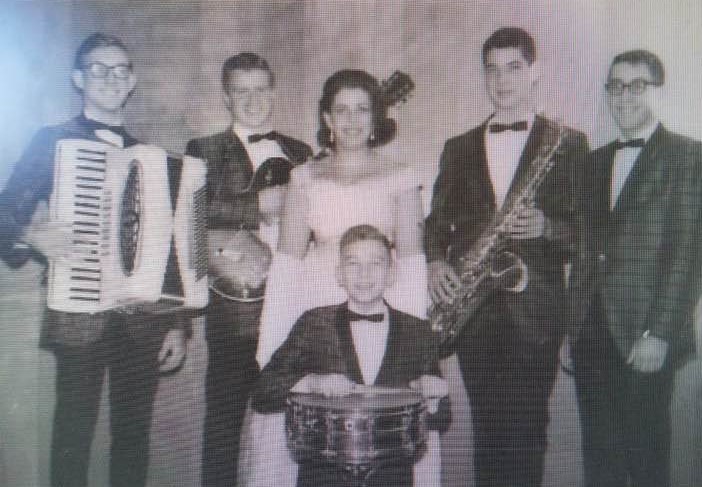
I attended Bowen High School and kept playing jobs. I even got hired as a waiter/musician at The Silver Beach Hotel in South Haven, Michigan, when I was 15 in 1965.
My last group before McLuhan was called The Seven Seas. Donnie Friedman (guitar) and singer Diane Struz did all pop tunes, but were really very good at all things Burt Bacharach. There was a drummer, keyboardist, trumpet player, and me, now mostly on sax.
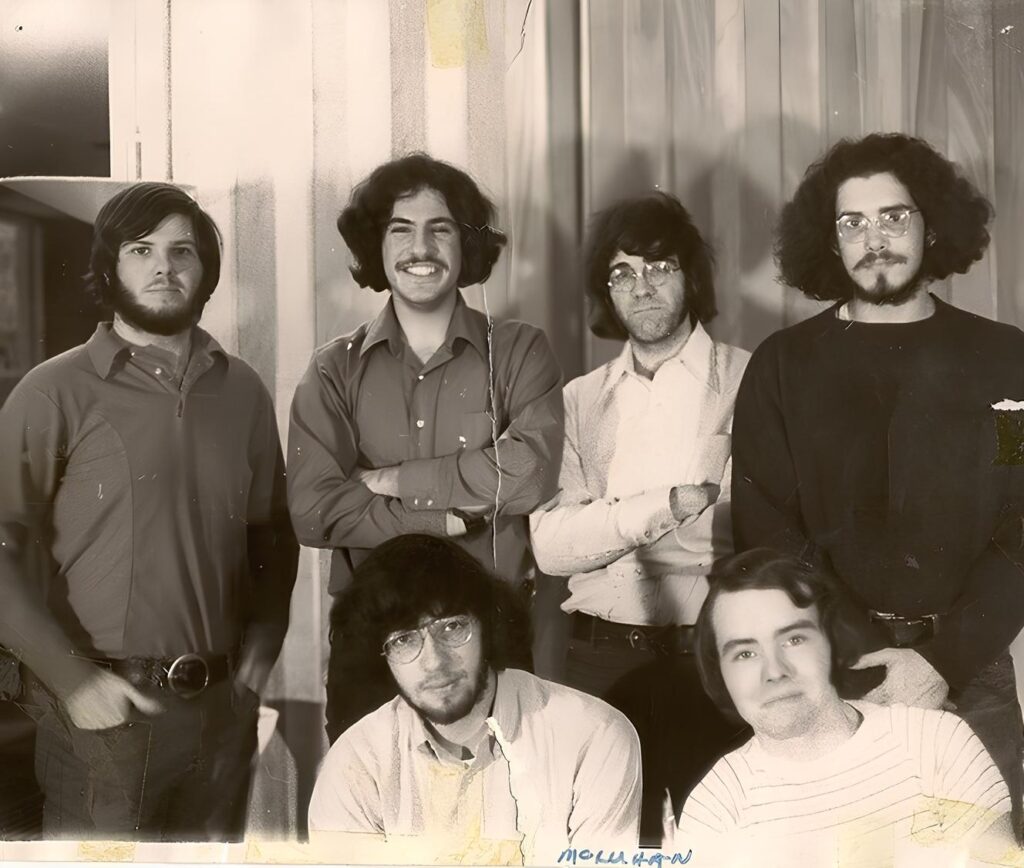
Can you elaborate on the formation of McLuhan?
So here is a critical event that led to McLuhan and then our only album, ‘Anomaly.’ My mom had moved to Rogers Park, and we (the Seven Seas) had started practicing there. I was attending the University of Illinois Chicago Circle campus and played in the concert band. I recruited trumpet player Dave Wright and drummer John Mahoney from there. I believe Marvin Krout, our keyboard player, brought me into The Seven Seas, but he also attended UICC. My next-door neighbor was none other than Neal Rosner, and he came over and played bass guitar. I really don’t remember what ticked Donnie and Diane off, but they stormed out of that rehearsal, and there we were with no leader or Bacharach girl singer!
So Dave spoke up about this idea he had where our music could not be defined. We would create material that broke all the rules—whatever felt good and even what was normally thought bad! Whether having poetry here or there, or actually playing a film, or using special new electronic devices, we were going to do it.
Dave suggested the name McLuhan from the Canadian professor and philosopher Marshall McLuhan. He said that to define man’s existence, you had to look at the mediums. “The medium is the message.”
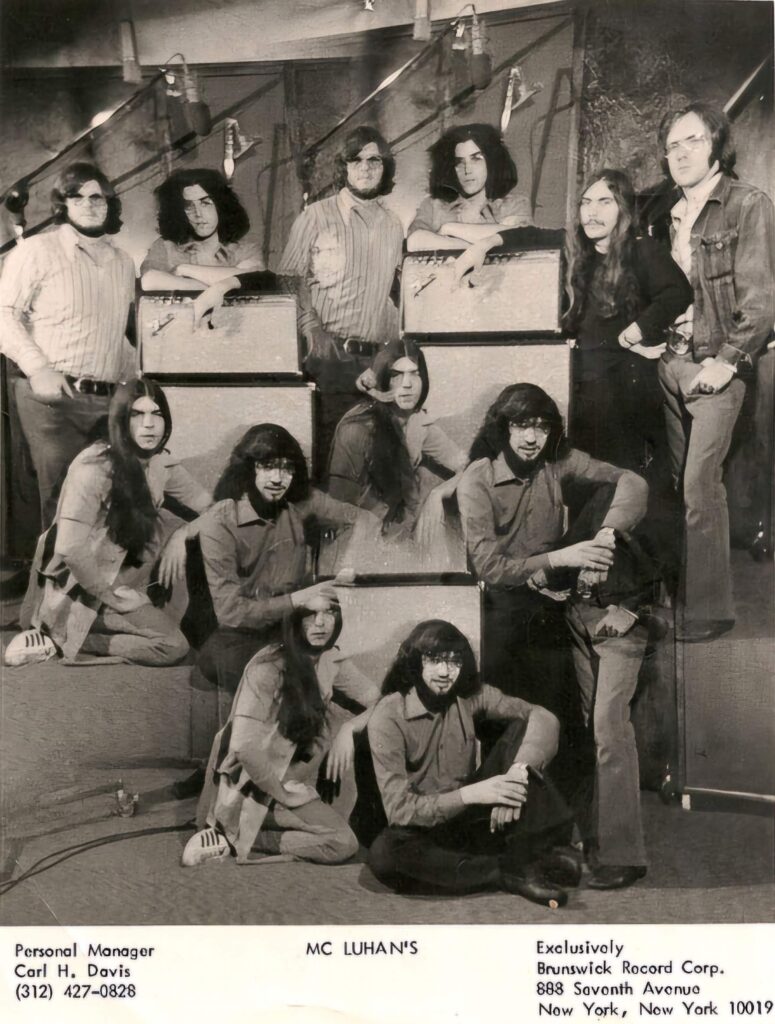
So here is the chilling part about this: Man started out as man where anything goes—living together in tribes with no boundaries: touchy, feely, smelly, etc. Then came print, which brought people inside by themselves. Then the assembly line and mass-produced autos. Then communications, including radio and television, propelled man to develop a global village. What would be coming next? Maybe the internet, which didn’t exist back then.
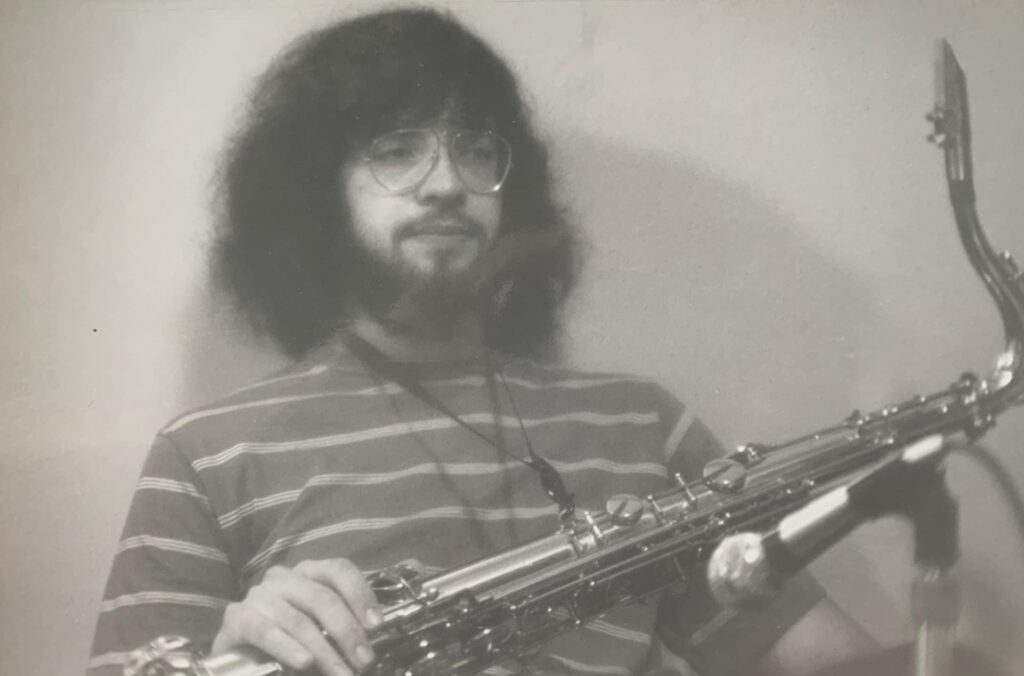
So Dave brought in his schematics, and we eagerly developed this new “music.” Within a few weeks, we were booked at a frat party and a few places where the hippies of the day seemed to be okay with it. Then we got booked at Wise Fools Pub, which turned into Monday nights. I believe this was in 1970. I remember another group, Wilderness Road, was also there regularly, along with some Chicago blues groups.
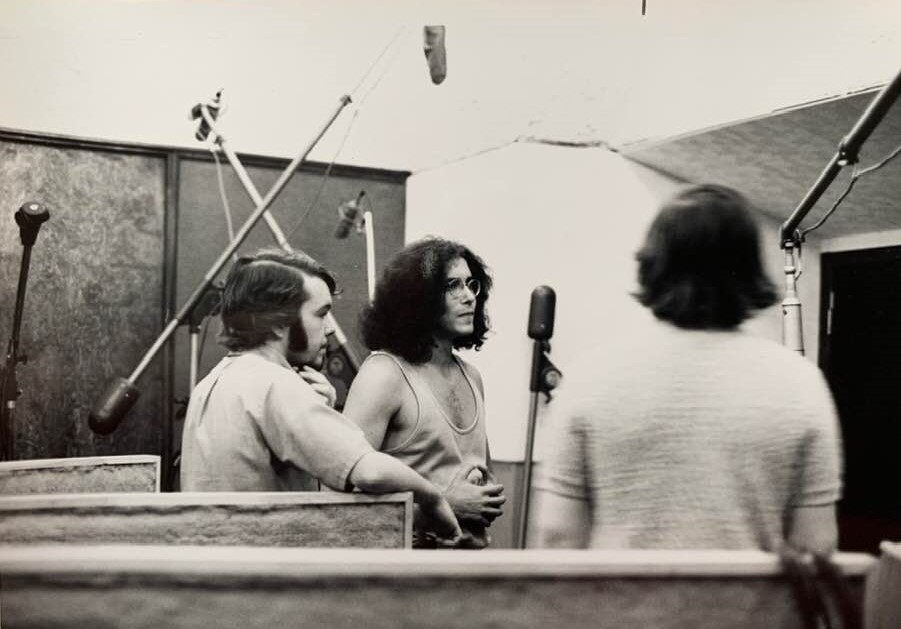
Marvin Krout brought in the tune we called ‘Spiders,’ but was already moving on when we got to the studio, so in came Tom Toija, who did all the keyboards on the album. Also, I had brought in a guitar player, Mark Rabin, who grew up with me and was at UICC. He was a wild man at performances, breaking his instruments and all. He disappeared, as I remember, so we recruited Stoney Phillips on guitar for the album. Both Stoney and Marvin have passed in the last few years.
Getting into the album, which we called ‘Anomaly,’ our music didn’t really follow anything. There are four cuts on the album: ‘Monster Bride,’ ‘Spiders in Neal’s Basement,’ ‘Witches Theme and Dance,’ and ‘A Brief Message From Your Local Media.’
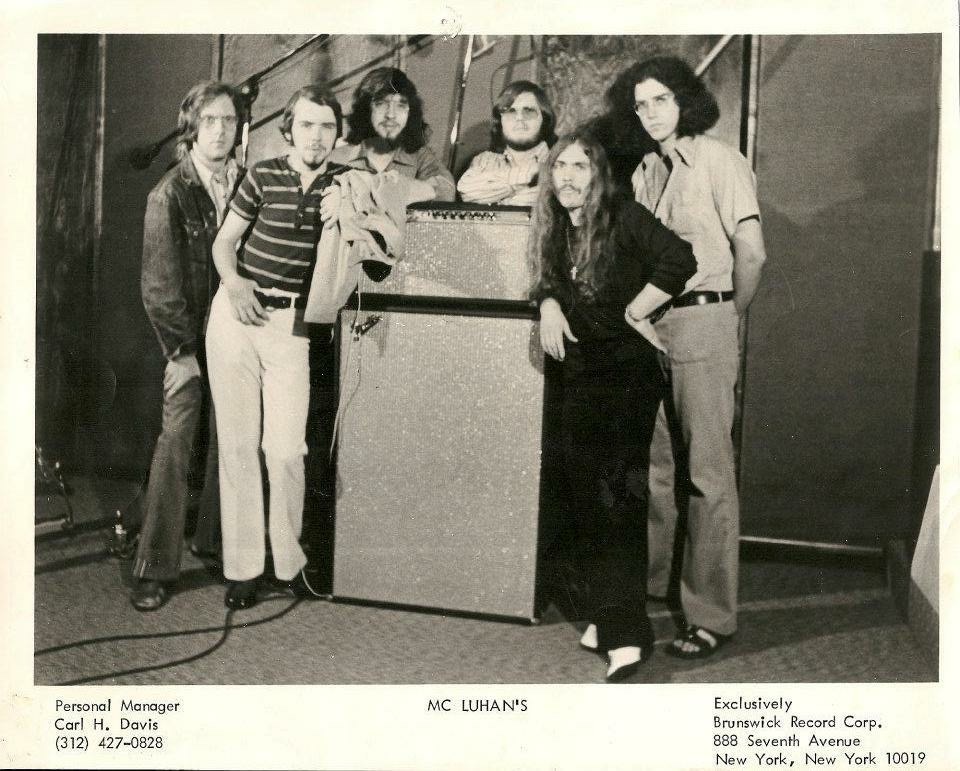
After cutting the album at Brunswick Studios at 1400 S Michigan Ave, the group quickly dissolved due to young graduates moving away to grad school and moving to Canada to avoid Vietnam, etc. So we all went our separate ways and didn’t really have any expectations of becoming famous. Then came that new medium called the Internet. About thirty years later, we noticed that it had given us worldwide recognition.
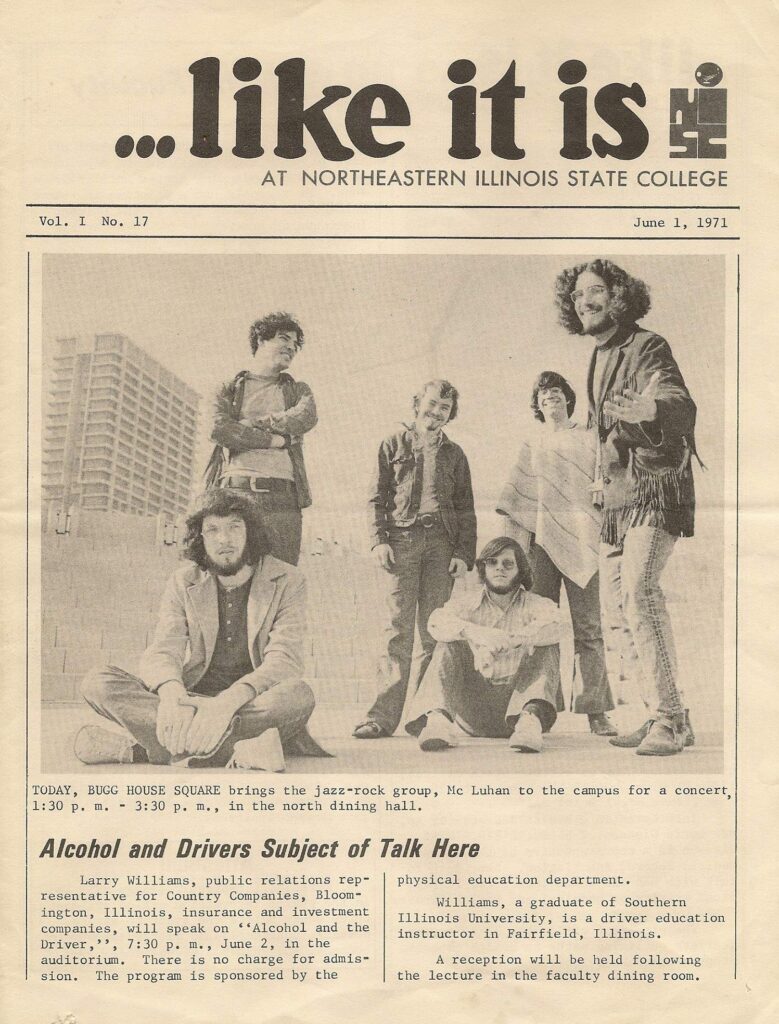
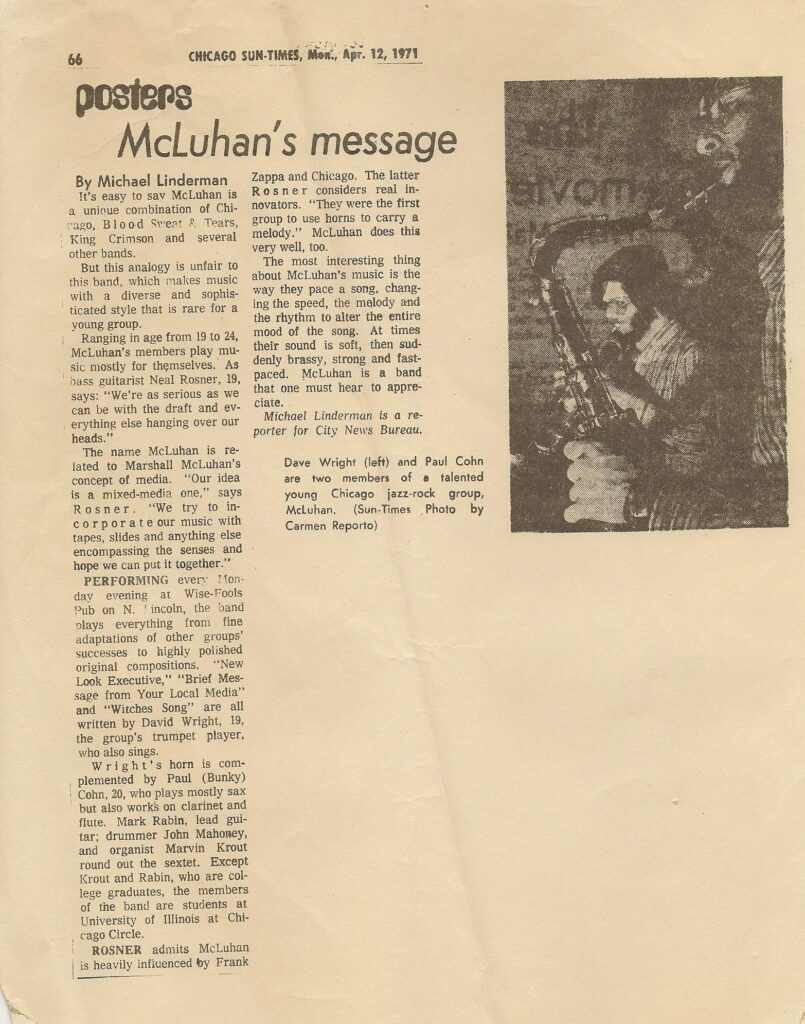
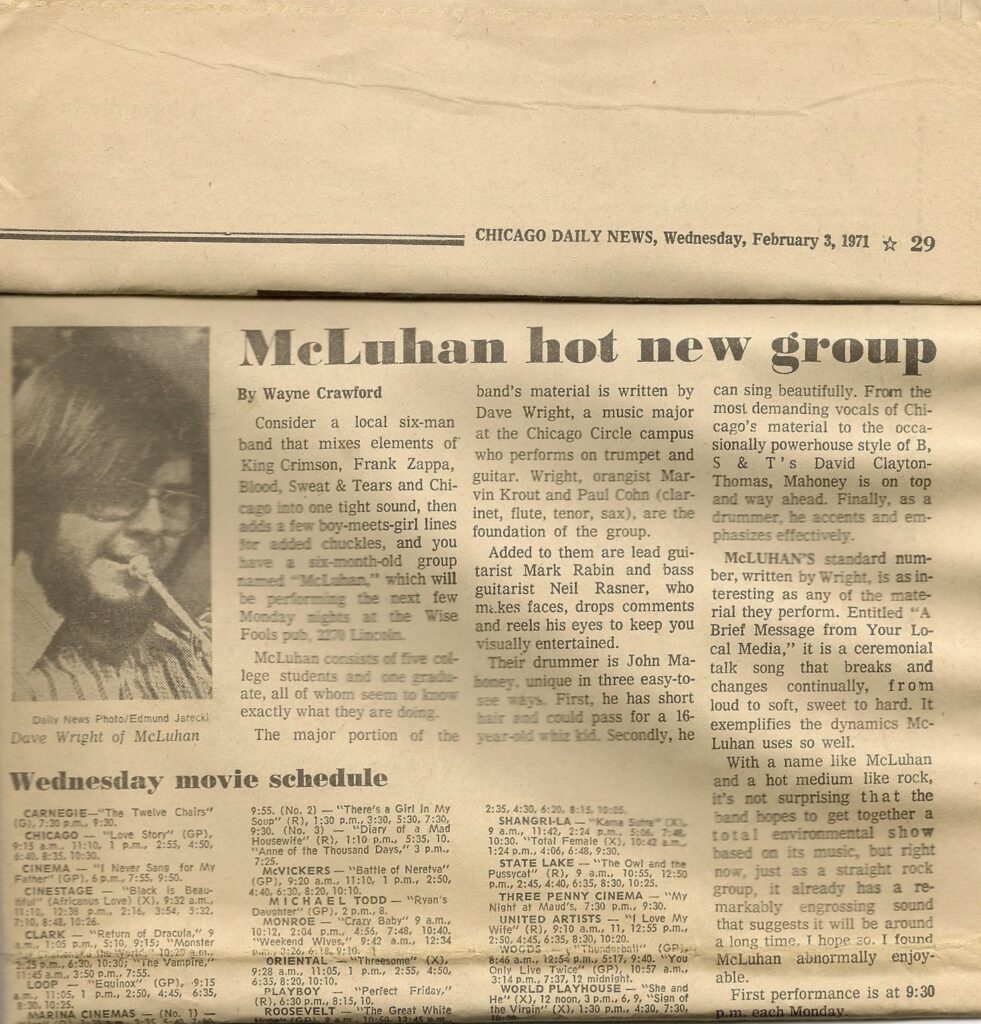
Bruce Swedien was a well-known studio engineer, and we were lucky that he heard us at Wise Fools with Carl Davis, who was the head guy at Brunswick Records. Mr. Swedien is known for his recordings with Michael Jackson, Quincy Jones, and Barbra Streisand. I recently spoke to Dave Wright, who was aware that Mr. Swedien was looking for something where he could help create a new type of album. He was assigned to be the producer of our album and gave it his best. We were only in the studio for two days, but we created the album of my life.
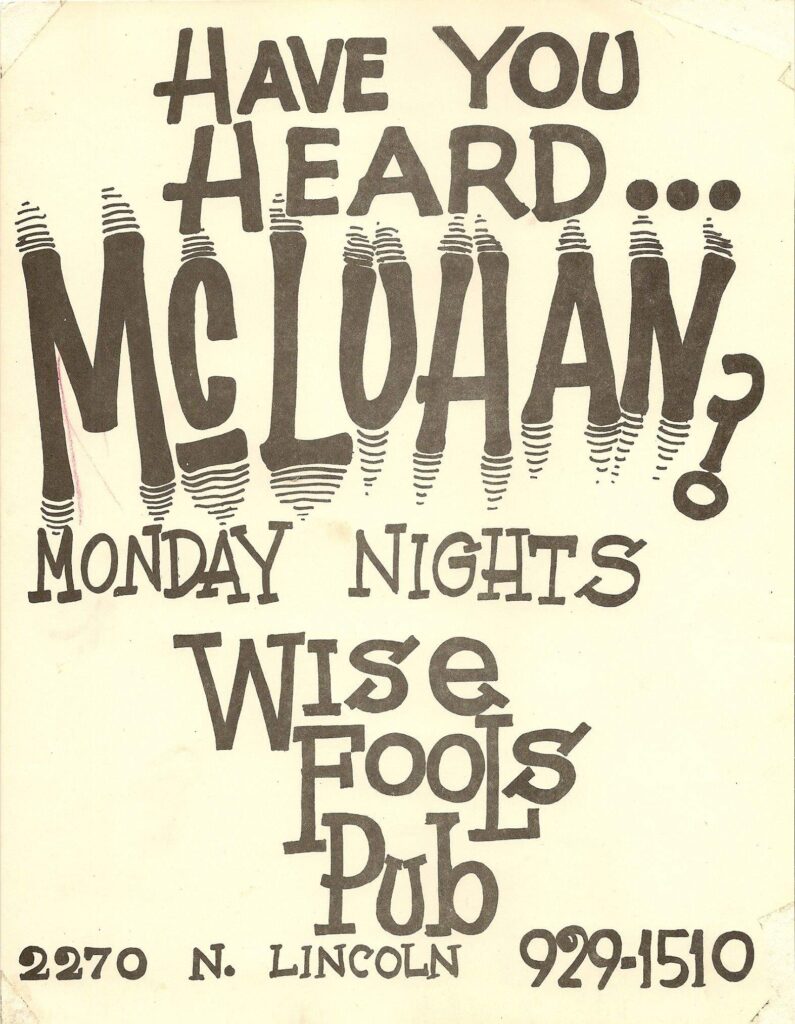
Getting a little personal, I just have to say that these guys are all close to my heart. I suffered the loss of my two daughters in 2011 and 2014. I am so fortunate to have shared my musical experience with them. My daughter Stephanie, in fact, went out and purchased the album online from an overseas source and gave it to me with a note that means everything to me. I had given Stephanie a flute years ago, and after her tragic death, I began using her flute!
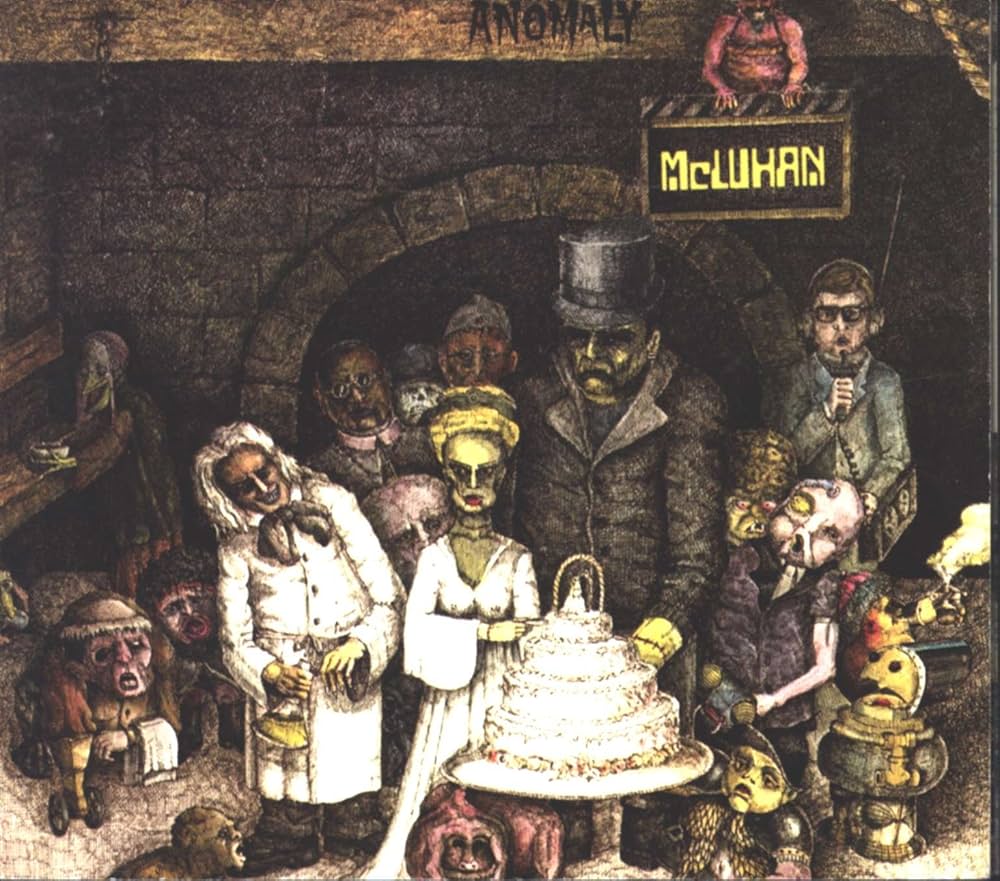
What influenced the band’s sound?
Actually, I didn’t go to many gigs. I loved Chicago, the group, predominantly because of their amazing brass. I was also influenced by various prog rock groups, including Jethro Tull, King Crimson, Pink Floyd, the Moody Blues, and Yes.
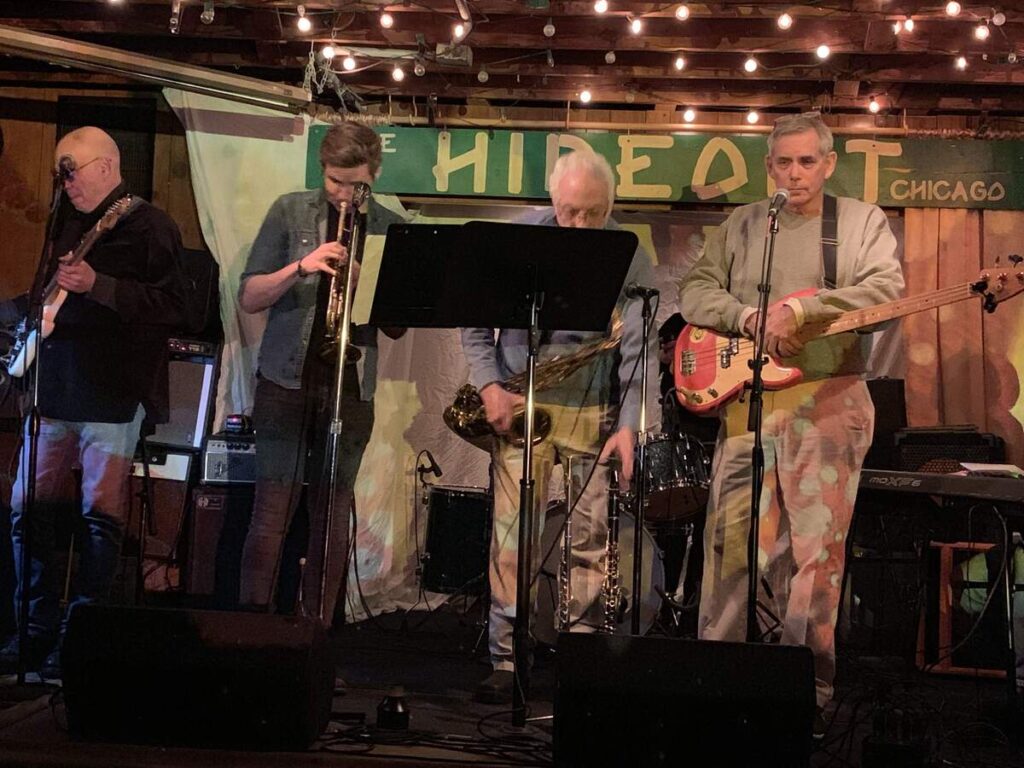
What happened after the band stopped?
We all remained in contact but were separated geographically and with our time. I started Googling McLuhan Anomaly maybe around 1995, so about 25 years after the album’s release, and I noticed it was getting attention. I believe I shared this with Neal and John. I couldn’t locate Dave Wright until just recently. Neal then set up a gig in Madisonville, Kentucky, and invited me and John. We recreated a couple of the McLuhan tunes and did some jamming. Then, returning home to Chicago, we started putting McLuhan back together. So I’m thinking this was about eight years ago. It is a challenge to do this with the original guys in their 70s. Neal has been instrumental in making this happen, with rehearsals in studios and his home and also covering expenses.
Klemen Breznikar
McLuhan Official Website / Facebook
Neal Rosner | Interview | New Album, ‘Kentucky’

